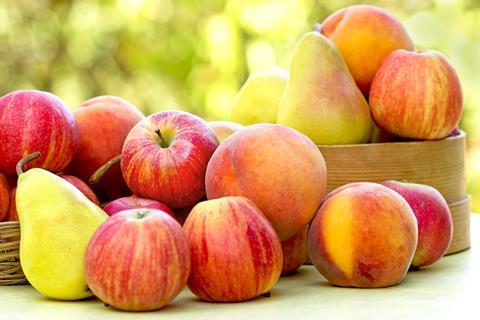New data from British Apples & Pears lays bear the growing pressure on producers

Industry body British Apples & Pears (BAPL) has stepped up its call for fairer returns on the back of new research showing the financial strain growers are under.
The cost of producing a kilo of British apples continues to rise, BAPL said, pointing to new data that reveals UK growers have seen a further 5.5 per cent increase in costs of production in the last year.
The 2024 cost of production analysis, conducted by farm business consultants Andersons, shows that it now costs a median £1.33 to produce a kilo of British apples, up from £1.26 per kilo in 2023.
However, it is the cumulative effective of multiple years of increased costs that is really hurting growers, financially and mentally, according to BAPL. “In the last two years, growers’ costs of production have increased by 30 per cent, but they have received just an 8 per cent increase in returns from supermarkets,” explained executive chair Ali Capper.
“There is simply no let up yet for British topfruit growers. The gap between the costs of growing fruit and the return from supermarkets is just getting bigger and bigger.”
Growing apples and pears ‘just not profitable’
In the last 12 months, the biggest contributor to cost increases for UK apple and pear growers has been labour, which makes up around 40 per cent of all grower costs.
“When growers calculate orchard profitability, they look back to see how costs, like labour, have increased,” Capper explained. “Back in 2014, a grower thinking about planting a Gala orchard would have checked back over the previous decade and seen labour cost inflation running at 4 per cent per annum.
“That would have meant the new orchard would be profitable by year 10 or 12 of its 18-year life. However, since 2015, labour cost inflation has been running at 7 per cent per annum. Following the same calculation, a new Gala orchard would never reach profitability. Growing apples and pears in the UK is just not profitable right now.”
Reduction in investment
With costs outstripping returns, growers are having to cut back on future investment in new varieties, new machinery, cold storage and packhouse infrastructure, Capper warned, describing the situation as “a slow, painful death without increased returns”.
“Some growers are even grubbing orchards and moving out of apple and pear growing altogether,” she added. ”That is a tragedy. We have the ideal conditions for growing the best-quality apples and pears in the world. Consumers need access to home-grown healthy fruit and that’s going to be at risk in future years if investment is cut back now.”
Apple and pear-growing businesses need long-term sustainable profits and fair retail relationships, Capper concluded. “We are very grateful to those supermarkets that are supporting growers, especially around the start of the British season, and in some cases with cost price increases to help fight inflation. We now need all retailers to take pride in championing their British growers to support sustainable profits and reinvestment for future fruit supply.”



